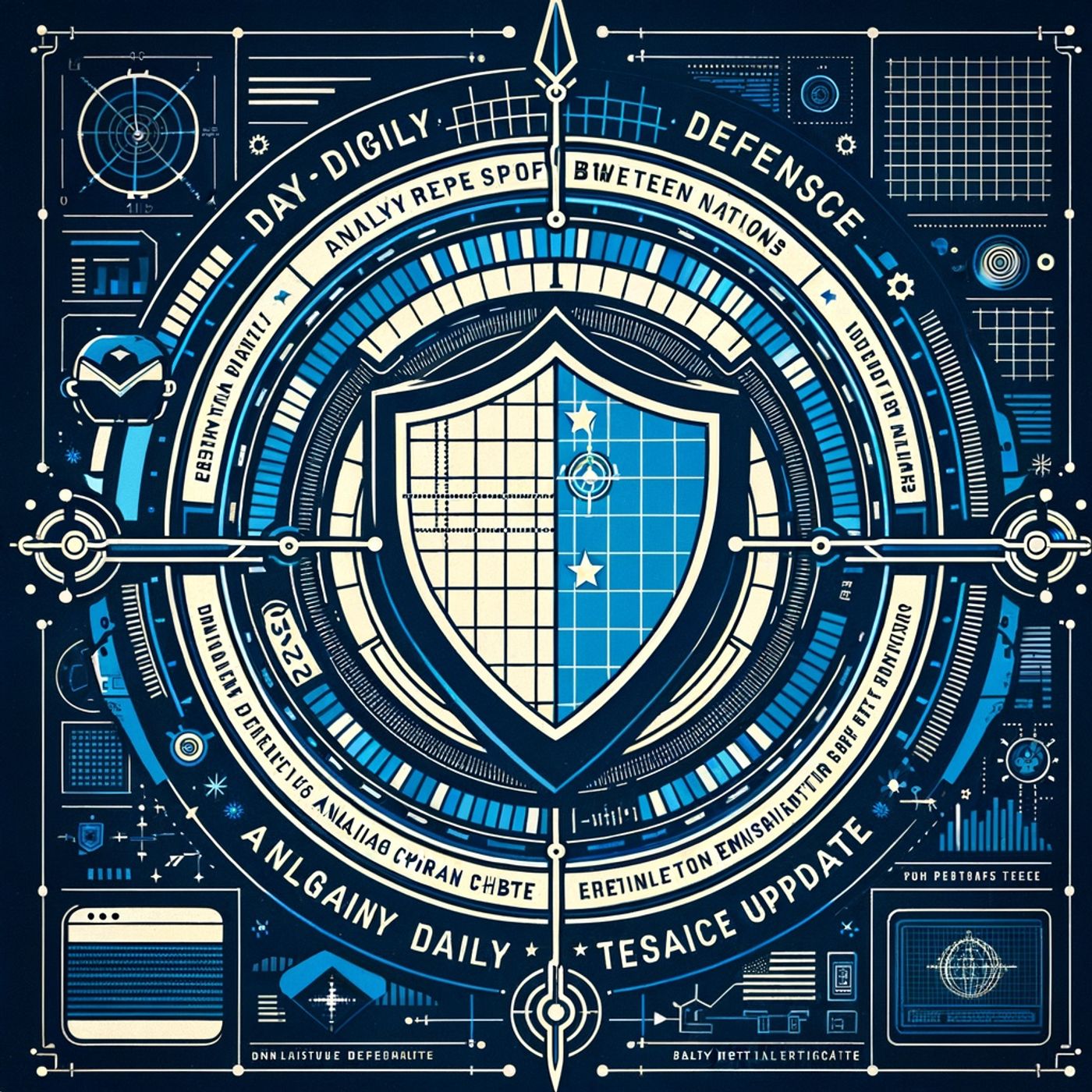China Hack Report: Daily US Tech Defense

China Hack Report: Daily US Tech Defense
Podcast Description
This is your China Hack Report: Daily US Tech Defense podcast.China Hack Report: Daily US Tech Defense is your go-to podcast for the latest insights on China-linked cyber activities impacting US interests. Tune in daily to stay informed about newly discovered malware, sectors under attack, and emergency patches. Get expert analysis on official warnings and immediate defensive actions recommended by CISA and other authorities. Stay ahead of cyber threats with our timely updates and strategic insights to safeguard your tech infrastructure.For more info go to https://www.quietplease.aiCheck out these deals https://amzn.to/48MZPjs
Podcast Insights
Content Themes
The podcast primarily covers cyber threats posed by Chinese hacking groups, focusing on specific incidents such as the Salt Typhoon and Volt Typhoon attacks, impacts on telecommunications and infrastructure, emergency patches, and the response of government authorities like CISA.

This is your China Hack Report: Daily US Tech Defense podcast.
China Hack Report: Daily US Tech Defense is your go-to podcast for the latest insights on China-linked cyber activities impacting US interests. Tune in daily to stay informed about newly discovered malware, sectors under attack, and emergency patches. Get expert analysis on official warnings and immediate defensive actions recommended by CISA and other authorities. Stay ahead of cyber threats with our timely updates and strategic insights to safeguard your tech infrastructure.
For more info go to
Check out these deals https://amzn.to/48MZPjs
This is your China Hack Report: Daily US Tech Defense podcast.
Hey listeners, Ting here with your daily US Tech Defense on China hacks—straight fire from the past 24 hours as of this wild Wednesday evening in early 2026. Buckle up, because while the US just flexed cyber muscle on Venezuela’s power grid, according to Politico, Beijing’s not sleeping; they’re burrowed deep in our systems like uninvited houseguests who rewired the WiFi.
Top of the heap: DarkSpectre, that slick Chinese-linked crew, just got called out by Antiy Labs for hitting 28 video conferencing platforms—think Zoom knockoffs—siphoning meeting data via sneaky WebSocket tunnels. That’s corporate boardrooms bleeding intel right into Beijing’s lap. Meanwhile, Ankura’s threat intel screams about 1,300+ vulnerable US devices, mostly unpatched Fortinet gear, despite CISA and FBI warnings blasting for years. These backdoors? Pure “Backdoor Bazaar,” as the Dragon’s Code podcast dubbed it yesterday, with Foundation for Defense of Democracies confirming persistent implants in federal networks for future sabotage.
Sectors under siege? Critical infrastructure’s the star—telecoms spying on Trump and JD Vance’s mobiles, per Politico, echoing that late 2024 Treasury breach via BeyondTrust supply chain, where Chinese APTs snatched unclassified docs. Mandiant’s March 2025 drop on UNC3886 exploiting Juniper Junos OS routers? Still echoing, with Linen Typhoon and Storm-2603 piling on. No fresh malware named in the last day, but expect evolutions from Flax Typhoon and APT41, per Taiwan’s NSB report from January 4—those guys ramped energy attacks 1,000% last year, probing ICS for grid hijacks.
CISA’s on high alert post-Venezuela, Acting Director Madhu Gottumukkala urging “heightened vigilance” across sectors, no specific threats yet but eyes on China-Russia retaliation. Emergency patches? Slam those MongoDB holes—70% of internet-facing instances were wide open as of December 30, 300K servers exposed. Juniper, Fortinet, BeyondTrust—patch now or pay later.
Defensive playbook from the pros: CISA says hunt for IOCs like Chinese ICP registrations in code, kill third-party master keys, and drill supply chain audits. FBI echoes: treat patches like ER triage. US Cyber Command’s prepping recs on CCP-linked scams turning criminal. For you tech defenders, rotate creds, segment ICS, and phish-proof your teams—Taiwan’s NSB saw social engineering spike with PLA drills.
China’s long game? Patient persistence, positioning for 2027 Taiwan chaos while we patch reactively. Stay sharp, listeners—this chessboard’s heating up.
Thanks so much for tuning in—subscribe for daily drops to keep your defenses ironclad. This has been a Quiet Please production, for more check out quietplease.ai.
For more http://www.quietplease.ai
Get the best deals https://amzn.to/3ODvOta
This content was created in partnership and with the help of Artificial Intelligence AI

Disclaimer
This podcast’s information is provided for general reference and was obtained from publicly accessible sources. The Podcast Collaborative neither produces nor verifies the content, accuracy, or suitability of this podcast. Views and opinions belong solely to the podcast creators and guests.
For a complete disclaimer, please see our Full Disclaimer on the archive page. The Podcast Collaborative bears no responsibility for the podcast’s themes, language, or overall content. Listener discretion is advised. Read our Terms of Use and Privacy Policy for more details.